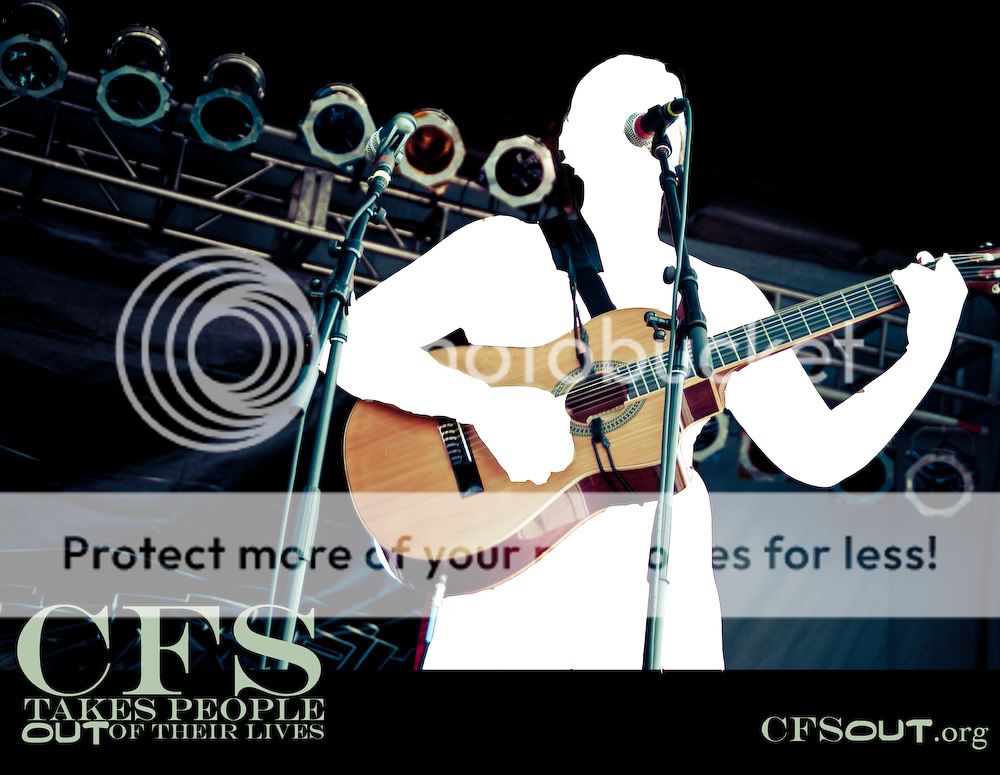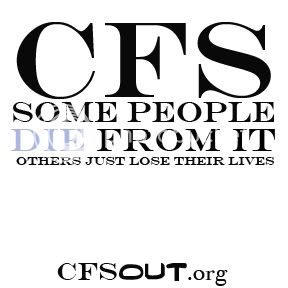CFS
takes lives
?
Yes, oh brilliant one!!!
CFS
takes lives
?
I always tried to start with the final goal, then work backwards to figure out what type of messages will bring them through the necessary steps to change their feelings.
Some great ideas.
Pre-CFS I worked on some training systems related to affective change (altering people's feeling about things). This is a tough communication challenge. I always tried to start with the final goal, then work backwards to figure out what type of messages will bring them through the necessary steps to change their feelings. Anyway, here are some thoughts about some possible goals, what is it that we want people to 'get' about CFS, maybe others have other goals. . . . Probably there are many ways these types of goals could be addressed in media campaigns.
But what if we want to seize the moment and be all about fundraising because we are on the cusp of a new day for CFS but we need more research and more money for research? Would maybe an awareness campaign around the medical aspects of CFS and what can be done NOW to help turn the tide towards real help and real cures be the thing to work on?
Maybe not just CFSers are coming out, but researchers, scientists, doctors . . . We're the new thing.
Gracenote, thanks for your thoughts. . . .Do you know anything about fundraising??
From Wikipedia: A peanut gallery is an audience that heckles the performer. The term originated in the days of vaudeville as a nickname for the cheapest (and ostensibly rowdiest) seats in the theater; the cheapest snack served at the theater would often be peanuts, which the patrons would sometimes throw at the performers on stage to show their disapproval. The phrases "no comments from the peanut gallery" or "quiet in the peanut gallery" are extensions of the name.
I think this would be very important because, as we've all seen, there are plenty of moving ads about how depression can take your life away, or take you out of your life with your family, etc (including one very recently with a "fading" motif involving a mother and her young daughter, I think).
From Kim's new thread we have our new slogan!
We're not a bunch of sick whiners!
One study Skurnik and colleagues conducted focused specifically on older adults. What they found was that the more often older adults were told a certain claim was false, the more likely they were, after a three-day delay, to remember it as true. "Repetition can backfire over time," the researchers concluded. In another study, the same researchers found that many young adults have a similar response. The key difference is that it takes younger adults longer - seven days, rather than three - to rebound from perceptions of false to true
CFS: A lousy name for a very serious disease.
Collateral/tshirt/button/bumpersticker for the CFS OUT campaign:
[/IMG]
Judy Mikovits said in one of her interviews (I can't remember which)
something like "the good news is you don't die from CFS" "the bad news is you don't die from CFS" Something like that -- anyway the medical people may not be able to fully get behind this one??
Keep it up; it is amazing work you are doing!

